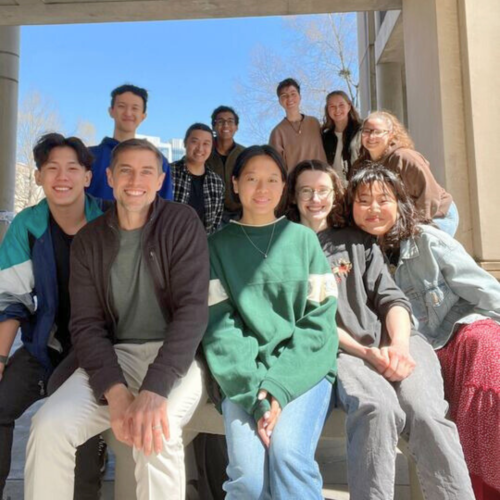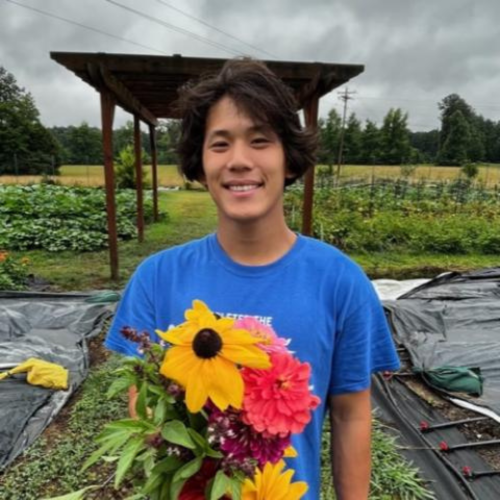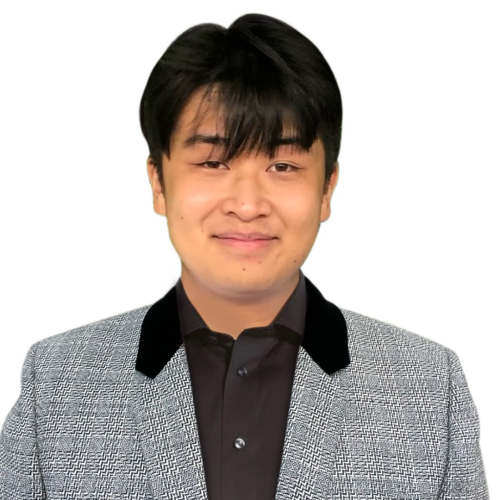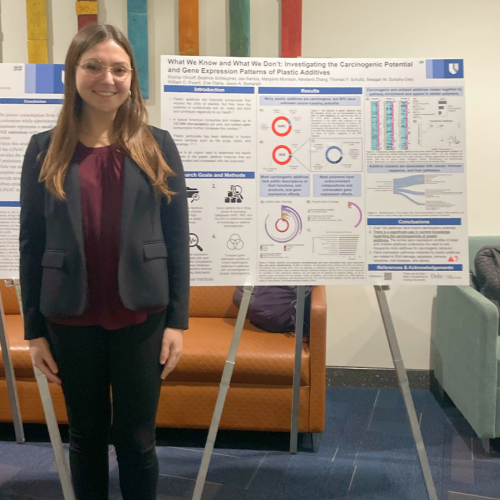
A Research Ecosystem to Tackle Plastic Pollution
For the past six years, Jason Somarelli has led a Bass Connections team developing nature-inspired solutions to the plastic crisis.
By Cara Kuuskvere, MEM ’25
Plastics are ubiquitous in our daily lives: wrapped around our food, blended into our clothes and polluting our water, our ecosystems and our bodies. Made from petroleum, plastic is durable and challenging to break down, taking hundreds of years to decompose.
During this process, plastic breaks into tiny pieces called “microplastics.” Microplastics travel easily through water and air and can even get into our blood. They are now found nearly everywhere on our planet, but their effects on human, animal and ecosystem health remain largely unknown and understudied.
Jason Somarelli, an assistant professor in the School of Medicine whose work lies at the intersection of medical oncology and evolutionary biology, has spent years considering how best to tackle the plastic crisis. Troubled by the negative impacts of plastic waste on the environment and the lack of understanding of the effects of microplastics and plastic additives on health, Somarelli sought a novel approach – one that would bring public attention to the problem but also inspire researchers and students to come together to prioritize solutions.

For the past six years, Somarelli – along with Will Eward (Duke Orthopaedics) – has led an interdisciplinary Bass Connections team of bioengineers, computational modelers and policy researchers to develop nature-inspired approaches to this global challenge, including through the identification of microbes that can convert plastic into biodegradable products and a more thorough accounting of the thousands of additives in plastic and plastic waste. Through his leadership, students have not only become interested in the plastic crisis but learned skills in synthetic biology, biomedical engineering, computation and modeling, and science communication, which are necessary to pioneer new avenues of this research.

Ming Shen, a senior studying biomedical engineering, works in the bioengineering workstream of the project team. In the lab, Shen manipulates bacteria to create new enzymes with improved plastic degrading capabilities. “Bacteria are amazing organisms that can be engineered do great things for us,” Shen shared.
He joined the team as a junior, and his passion for tackling plastic pollution and willingness to learn made him a valuable addition to the group. Under a graduate student’s guidance, he quickly developed skills to engineer new enzymes. “It was set up well for me to learn this project and then take it on as my own.”
Regular meetings across the team allowed Shen to learn about other students’ and researchers’ work in policy, microbiology, marine science and analytics. “I got to learn about their projects and become well-rounded.” The community was supportive, especially when dealing with research failures. “Jason always says, you may not get the results you expected, but you now have results. Either way, it’s progress!” Shen hopes to bring this resiliency and his technical skills into his next pursuit: a Ph.D. in bioengineering.

Cadmus Yeo joined the bioengineering workstream in the second year of his biomedical engineering master’s program. With a year and a half of lab skills under his belt, Yeo was surprised how quickly he became a mentor to other students on the team, especially to Shen. “This was a cool paradigm shift,” Yeo noted. In the past, he had always been the mentee. Now, however, he aimed to emulate leadership styles he admired, learning from Somarelli’s ability to organize the team and understand resources. “[This leadership] is a personal development challenge that I’ve set my sights on” and one that he plans to continue to develop as he now progresses through his biomedical engineering Ph.D.
Sophia Vincoff, a member of the team from 2020-2023, focused on the second main workstream of the project team, examining the human health impacts of the additives in plastic. Using bioinformatics, her subteam worked to document over 150 known cancer-causing substances and over 2000 potentially harmful substances in plastic. She and her teammates’ research thrived within the ethos of openness and research humility that Somarelli sought to cultivate for the team. “We have the people to help you learn, and that is the point,” she noted. Each team member’s role is to “do your best and ask questions.”

Now a biomedical engineering Ph.D. student, Vincoff feels this experience taught her how to do high quality, innovative research. “I felt like there were always so many follow-up questions and more analysis I could do. Having Jason accessible to answer my questions or to tell me ‘That’s the next paper, stay focused on this paper!’” helped her stay driven and keep focused on one research question at a time.
In addition to their experimentation and computational analyses, Vincoff also described how Somarelli cultivates an outreach-driven and community-engaged approach to the team’s research. Beyond teaching new undergraduates many of the skills she learned during her time as a project team member, Vincoff also stays connected with the team by working with current team members to lead research training workshops for local high school students.
Shen also started mentoring a high school student this past semester. “Jason incorporates a lot of people [in this work] as long as [they] have the enthusiasm. Teaching someone makes you better at the basic things and makes you a better researcher.”
Through the team, Shen also realized he enjoyed the mentorship elements of this work and was eager to give back and grow through what he describes as the “mentor-mentee” cycle.
As their research ecosystem grows, Somarelli aims to use the team’s knowledge to create actionable change to address the plastic crisis. “I want to see Duke and our work be a part of the instrument of change” for plastic pollution mitigation, he noted. He also wants to continue to build a team structure that promotes skill building, personal and professional growth, and peer mentorship – a structure, he describes, “to just let these amazing people be awesome.”
More researchers and students are set to become aware of this team’s work, as Somarelli and a large collaborative team across multiple Duke schools was just awarded a $2.3 million grant from the National Science Foundation to help the team continue their analytical work while also implementing policy change and interventions to reduce plastic pollution. The core grant team includes Meagan Dunphy-Daly, Nishad Jayasundara, John Virdin, Michelle Nowlin, and Gamini Mendis (Penn State Behrend).
Read more about Somarelli’s grant and the growing ecosystem of researchers working on plastic pollution at Duke.
Learn More
- Check out the Bioremediation of Plastic Pollution to Conserve Biodiversity team, which is currently recruiting students for 2025-2026.
- Explore additional 2025-2026 Bass Connections project teams and apply by February 10 at 5 p.m.
- Read more about Jason Somarelli’s approach to team leadership and mentoring.